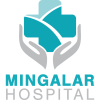Diagnosis Imaging Department
Chemotherapy drugs into a vein (intravenous) are usually given to you by nurses in a chemotherapy day unit. They take blood samples, give you your chemotherapy and monitor you for side effects. They also provide information and support for you and your family. The nurses try to make sure the unit has a calm atmosphere and the environment is comfortable. There are normally recliner chairs and some beds if you need to rest. A relative or friend can usually stay with you during your treatment.

There may be volunteers who can give you drinks or snacks when you need them. Some units also have complementary therapists, who provide therapies such as massage and reflexology. Having the chemotherapy drugs may take from half an hour to a few hours. But you may have to wait:
- for blood tests results
- for your chemotherapy drugs to be prepared and checked
- to see your cancer doctor.
You can take things with you to help pass the time like a book, music or playing cards. After you have had your chemotherapy, the nurses may give you drugs to take at home or a prescription for the hospital pharmacy. This may include anti-sickness drugs, steroids or any chemotherapy tablets you need to take. Your nurse or pharmacist will explain these to you.
Chemotherapy drugs given into a vein (intravenously) can be delivered in different ways. Your chemotherapy nurse will wear gloves and a plastic apron while giving you chemotherapy. This is just a precaution to protect them from spills.
Chemotherapy given into a vein (intravenous) goes directly into your blood and is carried to all areas of your body. It can be given through:
- a cannula – a short, thin tube put into a vein in your arm or the back of your hand
- a central line – a long, thin tube inserted into a vein in your chest
- a PICC (peripherally inserted central venous catheter) put into a vein in the arm and threaded through to a vein in the chest
- an implantable port (portacath) put into a vein, with an opening (port) under the skin on your chest or arm.
When your cannula, line or port is in place, the chemotherapy drugs can be given into it by injection, as a drip or through a pump.
Service Hours
Diagnosis Imaging Department is open Daily 24 Hours, Open 7 Days.

